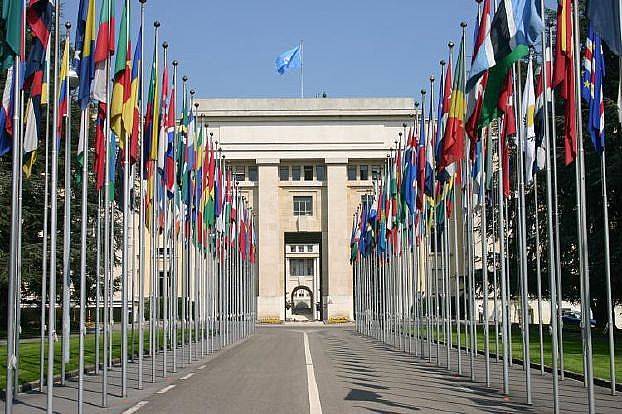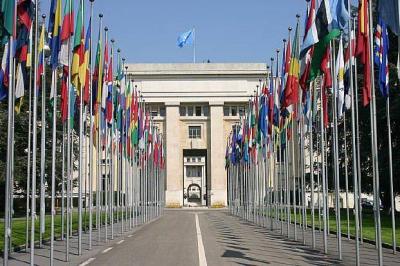On Monday, the response conference to assist Sudan in overcoming its crisis, chaired by Saudi Arabia for humanitarian support, was launched in Geneva, where the European Union pledged aid amounting to €190 million. The United Nations announced that Sudan received pledges of humanitarian assistance nearing $1.5 billion.
UN Secretary-General Antonio Guterres called on the international community to support Sudan, viewing the return to peace as the most suitable path to resolve the crisis, expressing sorrow that around "2.5 million Sudanese have been forced to leave their homes". Guterres stated, "The donation announcement for Sudan and the region, organized by the UN, Germany, Saudi Arabia, Qatar, and Egypt, can quickly devolve into chaos without strong international support, leading to insecurity throughout the region." He urged everyone today to provide the necessary funding for life-saving humanitarian assistance and support individuals living in the most difficult and dangerous situations. Guterres called for an end to violence against aid workers.
Qatar's Prime Minister and Foreign Minister Sheikh Mohammed bin Jassim Al Thani praised the Saudi-American mediation and "IGAD" efforts, calling for coordination and affirming that a political solution is the only way forward instead of military action. He urged both parties to adhere to international law and protect journalists and humanitarian and civil institutions, stating: "Our commitment compels us to stand in solidarity with the Sudanese people." He announced that Qatar had pledged $50 million to assist the Sudanese people.
Saudi Arabia's Foreign Minister Prince Faisal bin Farhan confirmed that "the Kingdom continues its efforts to peacefully resolve the crisis in Sudan." He announced: "The King Salman Center has allocated $100 million for humanitarian support in Sudan."
Egypt's Foreign Minister Sameh Shoukry referred to Egypt's ongoing efforts to return to dialogue and the necessity of a ceasefire. He stated, "The continued violence in Sudan has led to a deterioration of the situation," pointing out that Egypt has received a quarter of a million Sudanese fleeing the violence. He said, "We facilitated the evacuation of more than 10,000 international missions in Sudan."
Earlier this month, the United Nations highlighted that the humanitarian response plan it prepared only received 16 percent of the required funding. UN spokesperson Stefan Dujarric mentioned, "Out of the $2.6 billion needed for the humanitarian response this year, we have only received $400 million." According to UN estimates, 25 million people—over half of the country's approximately 45 million population—are in need of assistance in a country that was already among the world's poorest before the conflict. The fighting has led to shortages of food and basic services, with medical sources confirming that three-quarters of hospitals in conflict areas are now out of service.
The U.S. Agency for International Development pledged an additional $171 million for Sudan. Samantha Power, the agency's director, stated on Monday during an online intervention that the United States is committed to providing an additional $171 million to meet humanitarian needs in Sudan.
German Foreign Minister of State Katja Kolle spoke about the difficult conditions in Sudan, where everyone fears for their lives, saying: "Humanitarian teams must be facilitated and hostilities must cease to allow for dialogue." She continued: "We must keep the borders open," announcing that Germany had pledged €2 million to Sudan.
European Commissioner for Humanitarian Affairs Janusz Lenarczyk indicated that "25 million Sudanese are in need of assistance."
The African Union expressed its determination to rise to the level required to overcome one of the worst crises the world has witnessed. UN Assistant Secretary-General for Humanitarian Affairs Martin Griffiths expressed regret for the ongoing violence. He said, "The victims in Geneina and Darfur are a major concern." He added: "We sent cross-border trucks to help, and 1.8 million people have received assistance from us. We are working to increase aid, especially in the east." He continued: "We face major issues in Darfur due to our inability to access the area," urging the Sudanese authorities to resolve the visa issue, as it negatively impacts aid delivery. He spoke of the necessity for the FAO to successfully provide seeds for planting in Sudan before the winter season, warning that failure to do so will lead to a major food crisis. He stated: "We have provided $65 million, but it remains insufficient to address the shortfall." Griffiths pledged, "We commit $22 million to Sudan."
The UN Refugee Agency spoke of violations occurring at the Egyptian-Sudanese border during the displacement of Sudanese people, stating: "We have recorded 365,000 refugees since the onset of the conflict, the majority in Egypt and Chad. There are 113,000 Sudanese who have displaced to South Sudan due to the conflict." It called upon neighboring countries to keep their borders open to save lives and uphold humanity.
UN officials involved in providing aid anticipate that the Gulf region will contribute more to support the global aid budget of the international organization, which has already reached a record $51.5 billion in 2023, prior to the onset of the conflict in Sudan.




